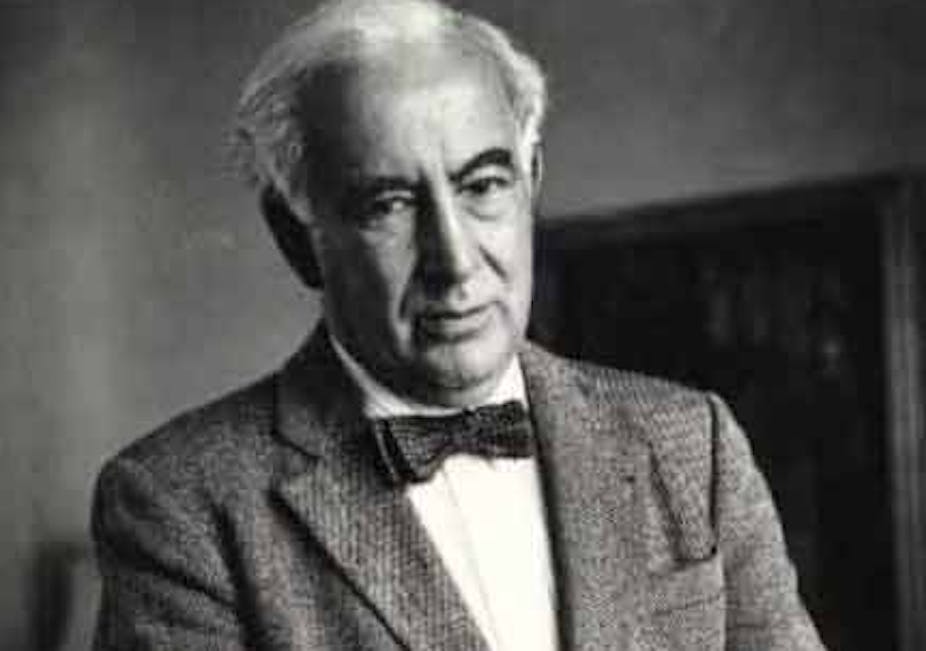After the purchase of the London Telegraph and Evening Standard, someone asked Lord Beaverbrook why he bought it, given the apparently limited financial returns that could be expected. His answer was simple: “power” - that is, political power.
When the late Sir Zelman Cowen, then Fairfax board chairman, related this story to Charles 20 years ago, it was not as a criticism of Beaverbrook, but as a part of the natural order of things and a reason why he could not initially see the point of an Editorial Charter of Independence. Charles argued that such an answer is unacceptable in a democracy using an earlier version of the argument outlined below. Zelman agreed and negotiated the charter.
Defining and policing the boundaries between the market and democracy is a perennial problem in modern states. Most of us value both democracy and the market – wanting politics to be run according to democratic principles (one-vote-one-value) and the market largely by market principles (‘one-dollar-one-value’).
The eternal temptation is for those with dollars gained in the market to influence decisions supposed to be governed by democratic principles – from funding political campaigns to outright bribery. The reverse concern is that those voted into office may seek to convert political power into dollars for themselves or their parties.
The media have a critical role in highlighting abuses in markets, democracies and their interaction. They play an essential role in public opinion formation and the democratic process. However, most media institutions face particular dilemmas because they are, simultaneously, key elements of an effective democracy and commercial entities operating in markets seeking not only readers/listeners/viewers but also revenue from them or advertisers. They benefit from favourable government decisions about media (and other) policies affecting their non-media assets.
These market interests can potentially distort the role that media institutions play in the formation of public opinion and, consequentially, in our democracy. Conversely, the privileged access that media corporations gain from politicians seeking a good press can skew decisions politicians have to make in a way that distorts markets while also undermining democracy.
If Beaverbrook’s answer were deemed acceptable, it would allow those gaining wealth from the market to dominate our polity. The media would not then stand astride both markets and democracy, but would become the means by which activities in one sphere dominate the activities in the other.
Democratic competition needs to be carried out on a level playing field. If most of the playing fields are owned by those barracking for one side and using their ownership to skew the result, democracy is in peril.
In order to fulfil its critical role within a democracy, media enterprises claim privileges that others do not have to protect sources and exemption or limitation of the reputational and privacy rights of those on whom they report. If they use their powers and privileges to fulfil this role, those claims are justified. Otherwise, they are merely traders for profit in assertions about the private lives of others.
How do we ensure, as far as possible, that the powers and privileges of the media are used for vital democratic purposes for which they are claimed rather than abused to increase the influence and non-media wealth of major shareholders? Our approach does not rely on greater government regulation or the diversity of views among those rich enough to control a media company. It centres on strengthening the profession of journalism.
If a rich individual were to seek control of a private hospital with a view to influencing the diagnoses, prognoses and treatments recommended by the professional doctors employed there, we would be utterly outraged.
Yet, some think it perfectly OK to do the same thing with media companies employing professional journalists analysing events, predicting outcomes and identifying alternative policies for voters. We do not.
Our suggestions for media governance were made to the Finkelstein Inquiry.
At their heart is a set of mutually reinforcing and independently interpreted and enforced codes for journalists, editors and media board members. Media activities undertaken under these codes would enjoy enhanced versions of the protections and privileges media currently enjoy. Those that do not would be subject to normal corporate regulation and pay full compensation for those whose reputations they injure. Media companies can choose which activities they pursue taking into account the costs and benefits of each.
The Fairfax Charter, the Media Alliance Code of Ethics and the Australian Press Council principles it pledges to support can certainly be improved. Ditching the Charter is not an improvement.

